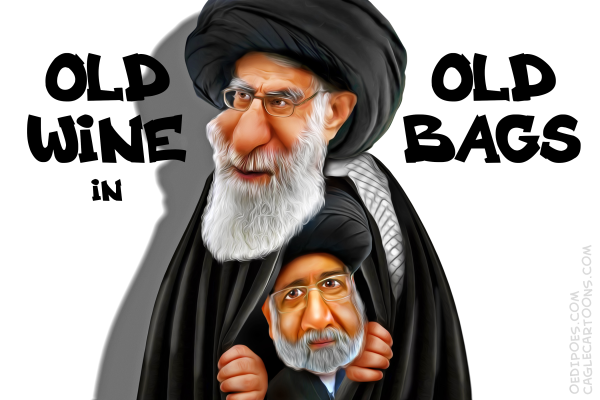
Under no circumstances should he be allowed to enter the country.
Raisi is a mass murderer. His government has repeatedly sought to assassinate officials and private citizens in the United States, just as it has assassinated numerous individuals in dozens of other nations.
In January, National Security Adviser Jake Sullivan publicly warned Tehran that "it will face severe consequences" if it endangers any Americans. Yet the Iranian government makes no secret of its abiding hatred for the United States and regularly issues bloodcurdling threats to annihilate Americans.
As recently as July 31, Iranian state media released a video trumpeting its ability " to turn New York into ruins and hell" by deploying intercontinental ballistic missiles, which are designed to deliver nuclear weapons.
If Raisi has a message to deliver to the General Assembly, he can do so by video, as he did last year. But he must not be permitted to enter the United States.
In a recent letter urging the Biden administration to deny visas to Raisi and his entourage, seven US senators spotlight his notorious record as a human rights violator. As deputy prosecutor in 1988, they note, "Raisi served on a Death Commission which sentenced approximately 5,000 prisoners to death, including women and children, without the right to appeal or a fair trial."
Far from regretting that record, Raisi boasts of it. In 2018, he praised the "divine punishment" meted out by his commission, calling the mass killings "one of the proud achievements of the system."
Amnesty International, assailing Raisi for a "spiraling crackdown on human rights" that has targeted "hundreds of peaceful dissidents, human rights defenders, and members of persecuted minority groups," has urged that he be investigated for crimes against humanity.
A key human rights official at the UN itself echoed the call for a probe into Raisi's bloody history. "It is very important now that Mr. Raisi is the president," said UN Special Rapporteur Javaid Rehman last year, "that we start investigating what happened in 1988 and the role of individuals [like him]."
In 2019, even before his accession to Iran's presidency, the US Treasury Department sanctioned Raisi, citing him as one of nine individuals responsible for advancing the Iranian regime's "domestic and foreign oppression." The sanctions were imposed under Executive Order 13876 , which, among other provisions, bars the entry onto US territory of designated persons whose presence "would be detrimental to the interests of the United States."
In response to the senators' call for Raisi to be denied a visa, a State Department spokesperson told reporters that the United States is "generally obligated under the United Nations Headquarters Agreement to facilitate travel" by representatives of UN member states. Washington has for decades faithfully upheld that obligation, issuing entry visas to numerous leaders of hostile foreign regimes, including the Soviet Union's Nikita Khrushchev, Cuba's Fidel Castro, Venezuela's Hugo Chavez, and Russia's Vladimir Putin.
But there have been exceptions. In 1988, the Reagan administration refused to allow Yasser Arafat, the chairman of the terrorist Palestine Liberation Organization, to enter the country. The Obama administration excluded Iranian ambassador Hamid Aboutalebi, a direct participant in the 1979 invasion of the US embassy in Tehran, when 52 Americans were taken hostage.
It should go without saying that Iran under Raisi remains a deadly threat. Innocent US citizens have been rotting away for years in Iranian prisons. American writers from Iran, including Roya Hakakian and Masih Alinejad have been tracked and targeted by Iranian operatives in the United States. Only days ago, the Justice Department unsealed an indictment charging a member of Iran's Islamic Revolutionary Guard Corps — a designated terrorist organization — with plotting to murder John Bolton, a former national security advisor and US ambassador to the United Nations.
For more than 40 years, "Death to America" has been a much-trumpeted goal of the theocratic regime in Tehran. As Secretary of State Antony Blinken has affirmed , that regime remains the world's foremost state sponsor of terrorism. Representatives from any number of unsavory governments will be on hand when the General Assembly convenes next month, but Iran's government and rulers are not merely unsavory. They are malevolent fanatics committed to the worldwide spread of evil. Nothing requires the United States to admit the president of a regime so hostile that it calls for America's destruction and doesn't scruple at killing Americans on American soil.
Foreign policy often involves delicate decisions and tricky diplomatic judgments, but this isn't one of them. Keeping Raisi out should be an easy call.
Jeff Jacoby is a columnist for The Boston Globe, from which this is reprinted with permission."


 Contact The Editor
Contact The Editor
 Articles By This Author
Articles By This Author